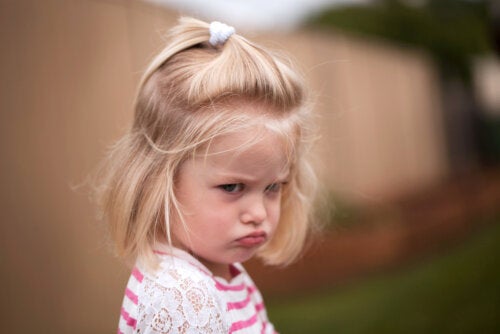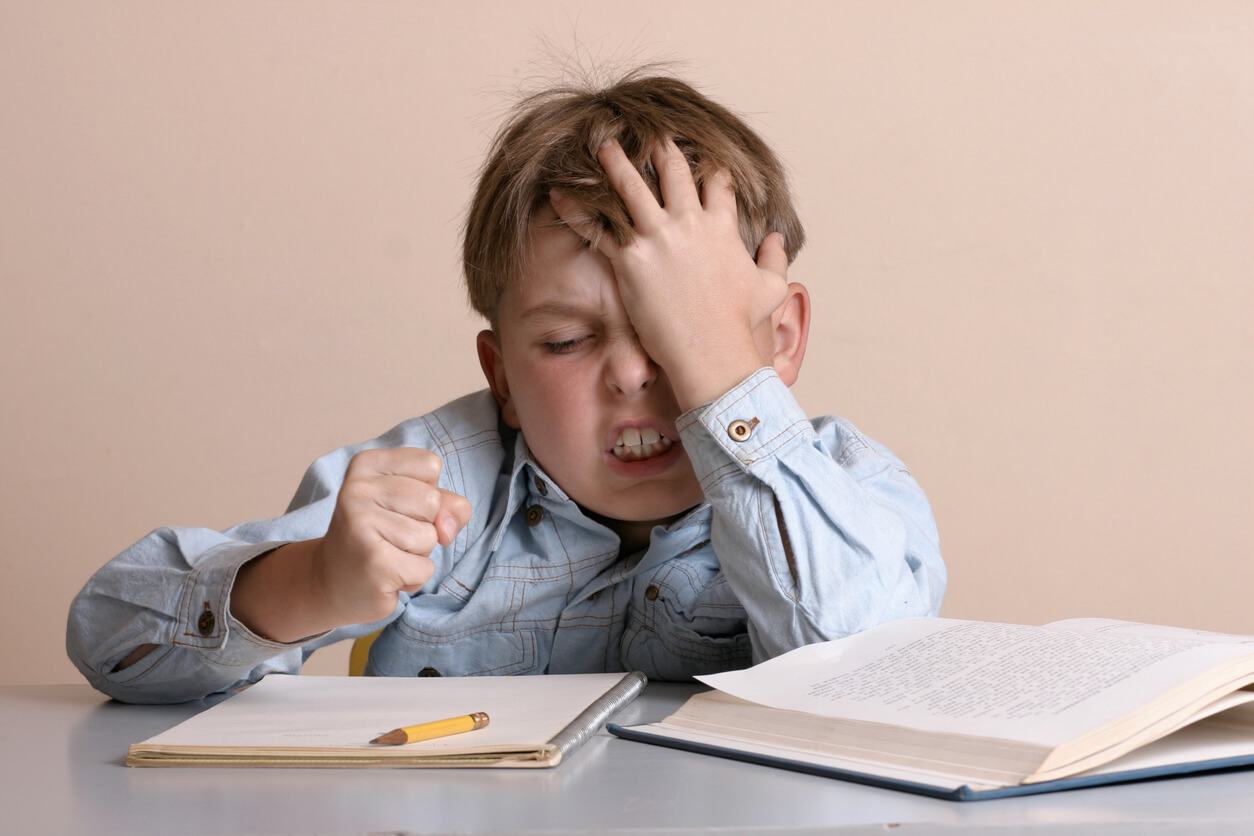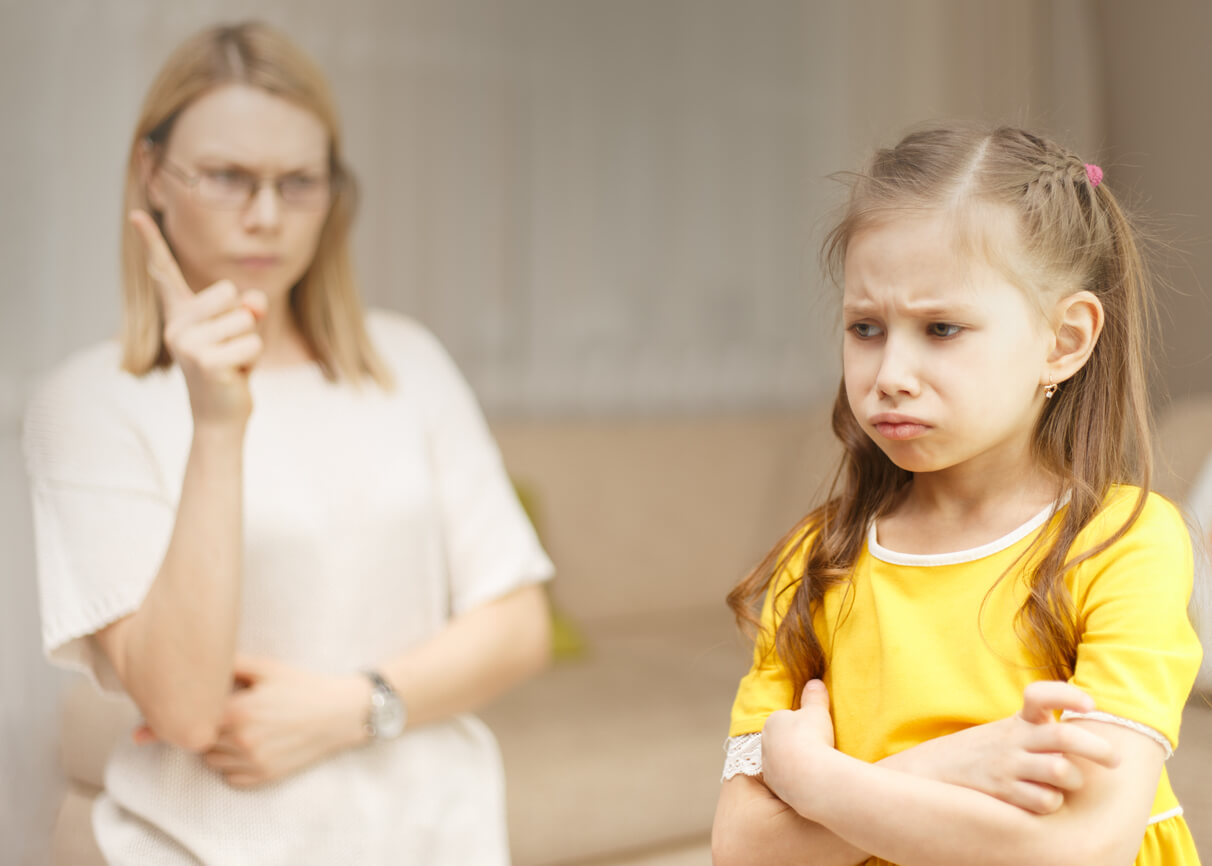Why Does My Child Get Angry About Everything?

Adults love the joy, excitement and fun that children exude. It’s inspiring to observe their capacity for enjoyment, forgiveness, and happiness. However, many children don’t display these characteristics that are so typical of childhood and, on the contrary, are fussy and touchy. If you wonder why your child gets angry about everything, we’ll tell you what the reasons may be and how to solve them.
It’s important to remember that, although it’s the children’s behavior that disturbs us, it’s the emotions that we must deal with. In other words, it’s not a question of getting the child to stop crying over everything, throwing tantrums, or being aggressive. The main thing is to understand what they feel and help them manage those emotions that lead them to act in a certain way. With this in mind, let’s explore the main causes.
Know the reasons why your child gets angry about everything
There’s no single reason why a child can be constantly angry. If we want to get to the root of the problem, we’ll have to look at certain aspects of their personality, the upbringing they receive, and their daily life. Therefore, the most common reasons may include the following.
They’re highly sensitive
According to estimates, 20% of the population is highly sensitive. If your child falls into this category, you should know that their way of feeling is different, deeper, more intense, and more capable of perceiving subtleties. For the same reason, in the eyes of others, they may appear to be a very sensitive, dramatic, or exaggerated child. However, their emotional expressions are genuine and represent only what’s going on inside them.
Being a parent of a highly sensitive child can be a challenge, as we have to take special care in the way we address them.

Doesn’t tolerate frustration
Tolerating frustration is understanding that we don’t always get what we want and that things don’t always happen the way we want them to. This is a learning process that children must progressively acquire through the limits and rules imposed by their parents. In this way, they become responsible, reasonable, and able to persevere after their goals or to accept refusal when necessary.
If a child grows up without limits and receives an excessively permissive upbringing, they’ll assume that their wishes are orders and will react with anger, aggression, anger, or crying whenever they don’t get their way.
They have low self-esteem
If your child gets angry about everything, it’s likely that they suffer from low self-esteem. This low self-esteem can lead them to take any comment as an attack or a personal offense. Children need to feel valuable, loved, accepted, and self-confident. A poor self-concept can make them especially susceptible to criticism and lead them to experience negative emotions on a regular basis.
Raised in a hostile environment
On the other hand, it has been found that the family environment also exerts a great influence on the child’s emotional state. For example, if arguments, conflicts, and power struggles are a constant at home, it’s normal for the child to be irritable and angry.

They haven’t received emotional education
All children need help and guidance to learn how to deal with their emotions. No one’s born with the tools to manage sadness, anger, impatience, or disappointment. It’s in contact with the adults closest to us that we can acquire the necessary tools to manage our internal states.
So, if your child gets angry about everything, it’s probably because you haven’t taught him how to deal with these feelings. Little ones need to learn to identify what they feel and why they feel it. Also, they need to know that it’s normal and valid, but that there are more appropriate ways to express and manage anger than others. Educating in emotional intelligence is essential from the early years.
Other reasons that may explain why your child gets angry about everything
In addition to all of the above, we can’t lose sight of the fact that it’s possible that the child is going through some experience that requires specific help. A child who’s always angry may be the result of stress, academic problems, bullying, or a bad family situation.
In addition, if a recent loss or major change has occurred in the child’s life, their suffering may be camouflaged under apparent anger. At the same time, it’s important to find out if the child suffers from an anxiety or mood disorder that requires professional intervention. A child may not be able to understand and externalize what’s happening to them, so it’s the parents who should pay attention to their behaviors and attitudes to find out.
Anger isn’t the natural state of a child
First of all, keep in mind that anger isn’t the natural state of any child. So, don’t resign yourself to accepting that this is your child’s personality. Their anger is a way of asking for help. When you have found the origin and put into practice the means to change it, they’ll be the emotionally healthy and happy child they deserve to be.
All cited sources were thoroughly reviewed by our team to ensure their quality, reliability, currency, and validity. The bibliography of this article was considered reliable and of academic or scientific accuracy.
- Acevedo, B. P., Aron, E. N., Aron, A., Sangster, M. D., Collins, N., & Brown, L. L. (2014). The highly sensitive brain: an fMRI study of sensory processing sensitivity and response to others’ emotions. Brain and behavior, 4(4), 580-594.
- Vite, A., Negrete, A., & Miranda, D. (2012). Relación mediacional de los esquemas cognitivos maternos en los problemas de comportamiento infantil. Psicología y Salud, 22(1), 27-36.
